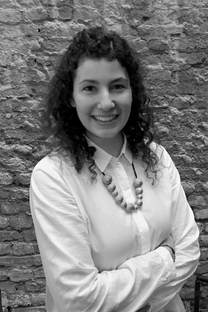Anna Brückner
Working title: “Blue Health for All?” Urban Blue Spaces as Potentially Therapeutic Landscapes for Aging Populations in Ahmedabad and Ruhr Metropolis
Research countries: Germany, India
Research themes: Healthy aging; urban blue spaces; integrated urban planning
Background
In past decades, research has increasingly shown that urban waters (‘urban blue spaces’), e.g. coastlines, rivers, lakes, fountains, have multiple health benefits for townspeople. The three main pathways linking blue spaces to improved health outcomes are: (I.) motivated physical activity, (II.) increased social interactions and (III.) enhanced mental wellbeing through relaxation and restoration. Additionally, blue spaces provide diverse ecosystem services that improve the quality of life in urban areas, including cooling effects, reducing air and light pollution and providing habitats for urban wildlife.
In current urban development schemes, blue spaces are at the heart of urban regeneration policies to link cities back to the water; as can be seen in the global phenomenon of ‘waterfront revitalization’.
Just like for urban greening actions, the regeneration of urban blue spaces offers the chance to advance the idea of environmental justice throughout cities. Particularly deprived communities lack access to environmental health resources like well designed green and blue spaces, but are most affected by health threats and a high burden of disease. However, urban planners face the challenge to reconcile economic, ecological and social interests in (re-) developing blue spaces. In fact, it seems that current approaches might even reinforce existing socio-spatial inequalities by inducing ‘blue gentrification’ (Kistemann 2018) processes. Global driving forces and urban transformation processes such as climate change and increasing multi-actor governance further complicate matters. Thus, the question arises how to provide universal access to blue spaces and ensure “blue health for all.”
Research question
With regard to the pressing need to adopt cities to aging populations, the purpose of this study is to investigate the health-promoting potential of urban blue spaces for senior citizens in Ahmedabad, India and Ruhr Metropolis, Germany. Given the spread of major public health challenges such as physical inactivity, social isolation and mental disorders among older adults, this vulnerable population group is likely to benefit most from urban blue space exposure. The second objective is to identify facilitators and barriers in developing age-friendly blue spaces in order to add on how a ‘good urban blue governance for health’ (Baumeister 2016) could look like.
Method
In both study areas, the arts-based research design of photovoice is applied to record senior citizens’ blue health experiences and blue landscape preferences and to contrast their needs and uses of blue spaces with the current provision of urban blue. This involves using mixed methods including participant observation, questionnaire-based survey, guided interviews, focus group discussions and choice experiment. Key-informant and expert interviews are conducted to assess the supply factors (for example, funding strategies) in local blue space development.
Expected results
This research contributes to further understand the urban blue space-health relationship and its underlying mechanisms, such as the influence of different blue space characteristics or diverse living contexts. The study aims to derive policy recommendations that could guide urban planners, policymakers and landscape architects to design age-friendly and health-enabling urban blue spaces.
Sources
Baumeister, H. (2016): Blue Governance – Chance für eine gesundheitsförderliche Stadtentwicklung. Dissertation, Universität Bielefeld.
Kistemann, T. (2018): Gesundheitliche Bedeutung blauer Stadtstrukturen, In: Baumgart, S., Köckler, H., Ritzinger, A., Rüdiger, A. (Hrsg): Planung für gesundheitsfördernde Städte, Verlag der ARL, Hannover: 317-331.
Supervisor(s):
Prof. Dr. Thomas Kistemann (IHPH)
Prof. Dr. Mariele Evers (GIUB)




